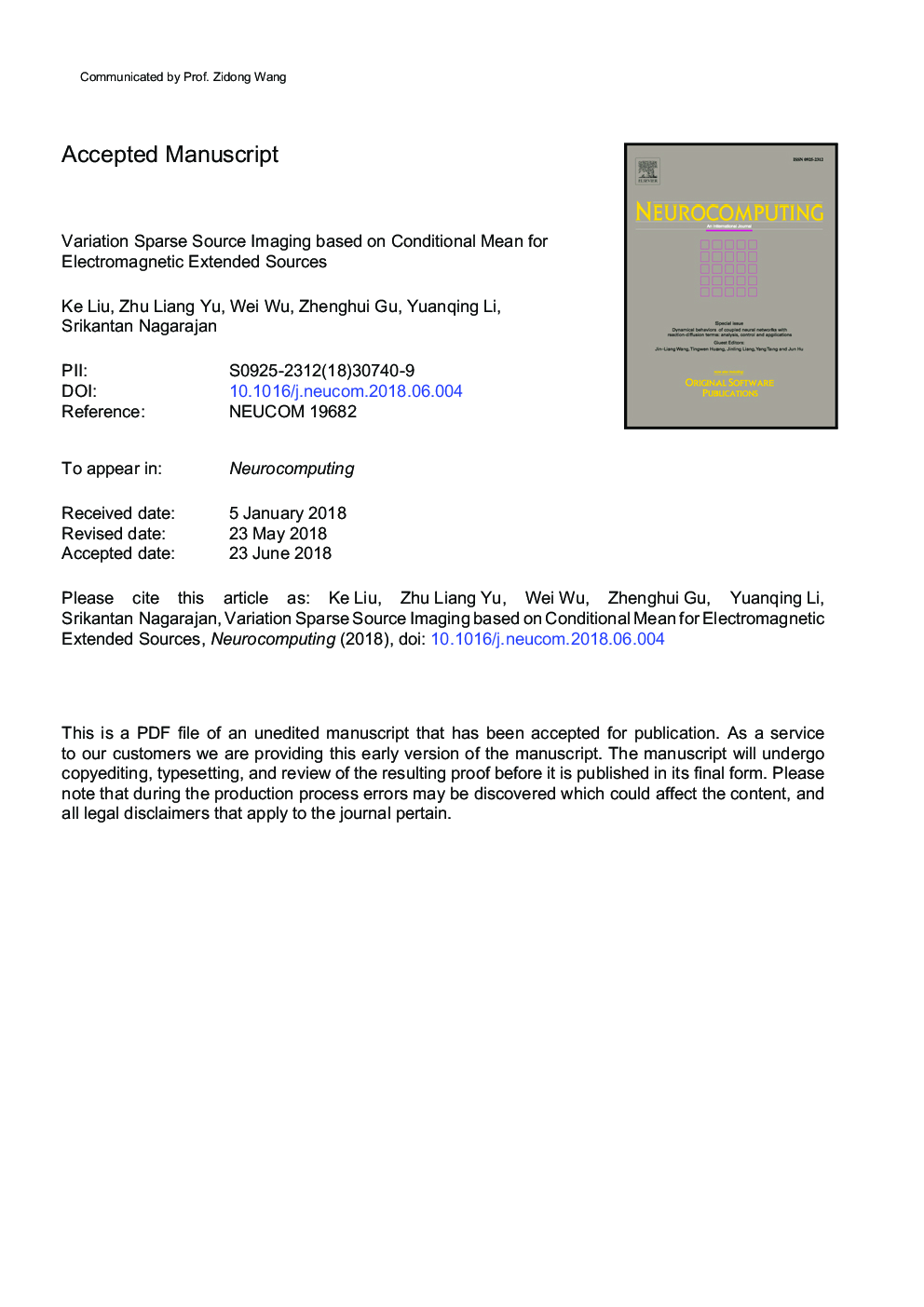| Article ID | Journal | Published Year | Pages | File Type |
|---|---|---|---|---|
| 8953568 | Neurocomputing | 2018 | 47 Pages |
Abstract
Electromagnetic (E/MEG) brain source imaging involves challenging problems that make it particularly difficult to estimate both the locations and extents of extended sources. In this study, we propose a new method called Variation Sparse Source Imaging based on Conditional Mean of the posterior (VSSI-CM), which is built upon a Bayesian framework, to reconstruct extended E/MEG generators. Based on the proposed framework, VSSI-CM can employ various spatial priors (e.g., the Laplace prior) to explore sparseness of current sources in transform domains (e.g., the variation transform in this study). Considering the complexity of posterior density in the estimated sources, we propose using the posterior mean instead of the typical maximum a posterior (MAP) estimate as a more accurate inverse solution. The posterior mean is obtained by fitting an approximated Gaussian distribution to the intractable true posterior distribution. An efficient double-loop algorithm is also proposed using convex analysis skills. Validation using synthetic and human experimental data sets indicates that VSSI-CM outperforms the well-studied L2-norm methods (i.e., sLORETA and dSPM) and the sparse constrained methods that explore sparseness in the original source domain. The estimates from VSSI-CM are also more accurate than that from MAP.
Keywords
Related Topics
Physical Sciences and Engineering
Computer Science
Artificial Intelligence
Authors
Ke Liu, Zhu Liang Yu, Wei Wu, Zhenghui Gu, Yuanqing Li, Srikantan Nagarajan,
